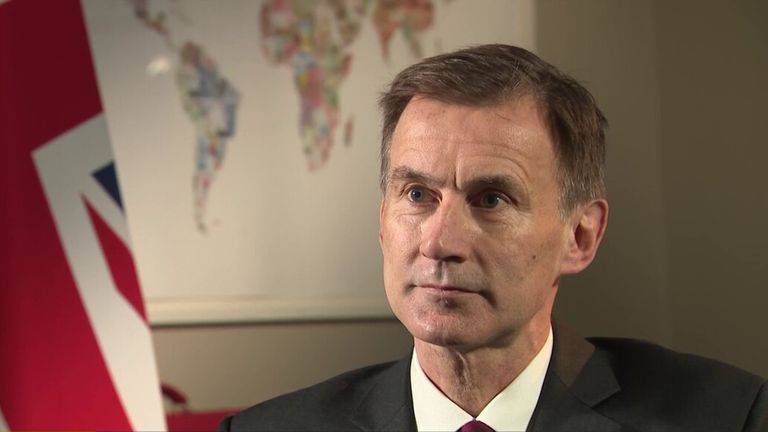Inflation may have peaked but you should still be prepared for a bleak winter ahead
It takes a particularly committed optimist to find good news in annual inflation of 10.7%, but for economists, if not yet households, there is a glimmer in November’s data from the Office for National Statistics.
The figure remains close to a four-decade high but the fact it has fallen slightly from October’s 41-year peak of 11.1% will fuel the hope that inflation has peaked.
If that is the case, there may be relief in the Treasury, currently locked in a war of attrition with public sector unions, but it will take some time before consumers start to feel any benefit.
Neither is it likely to deter the Bank of England from imposing a further 0.5 percentage point increase to Bank rate when its decision is announced on Thursday.
The tempering of the overall inflation figure is largely the consequence of a fall in fuel price inflation, up 17.2% in the year to November, a slower rate of increase than the 22.2% year-on-year for October.
This demonstrates the lingering challenge of understanding and then tackling inflation; while the rate of price increases has slowed, the price at the pump has not shifted, and the cost of most goods remain dramatically higher than they were – and in some categories are continuing to rise.
The most dramatic example is food inflation, running at a remarkable 16.4% and still climbing, up from 16.2% in November. As a consequence, inflation in the hotel, pub and restaurant trade is still accelerating too, the November figure of 10.2% representing a 31-year high.
At Birmingham Wholesale Market, which services the shops and hospitality industry of the West Midlands, traders have stark examples at the start of what should be the Christmas rush.
A box of clementines that cost £10 a year ago hit a peak of £18 in the autumn, but in the last week has fallen back to £15.
Mark Tate of George Perry Produce attributes that to falling energy costs in Europe, allowing Spanish growers to begin heating greenhouses again.
Domestic pressure means there’s no turning point yet for eggs, up from £30 a wholesale box to £70, and staying there as avian flu squeezes supply.
Food price inflation, driven by the increase in the price of fuel, feed and fertiliser, all a function of underlying energy costs, is something everyone will feel, and means the cost of living squeeze remains tight this Christmas.
Falling inflation will be cited by the government as evidence the chancellor’s plan to bring it down is working, even if most economists believe it an inevitable consequence of October’s energy price rises determining the peak.
It will do little however to change the terms of disputes with public sector unions, for whom steepling inflation has accentuated an austerity-driven decade of falling real-terms pay.
Jeremy Hunt and Prime Minister Rishi Sunak argue that higher pay-settlements will fuel a “wage price spiral” that entrenches inflation, but even private sector pay, more responsive to market pressure and averaging 6.9%, is still lagging well behind prices.
And while there is no cost passed onto consumers from increasing a nurse or a teacher’s wage, there is a widening gap to the private sector, with average public sector pay running at 2.7%.
In a still-tight labour market, that increases the recruitment challenge to services already struggling to fill vacancies.
For all the latest business News Click Here


